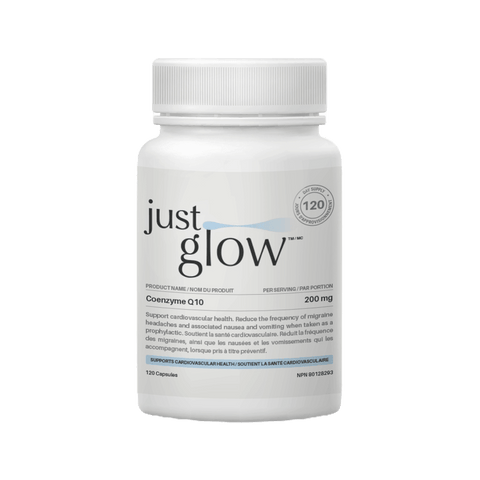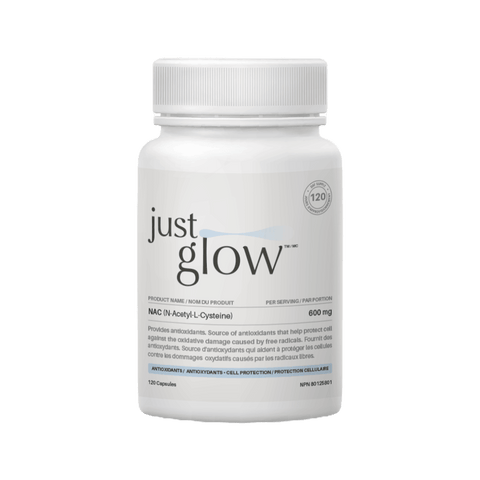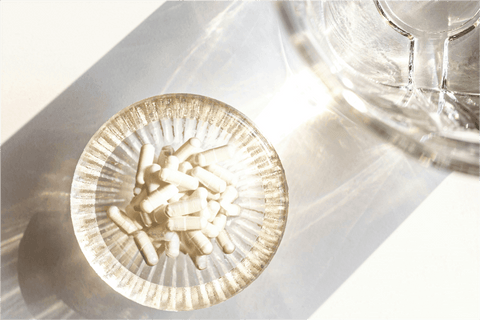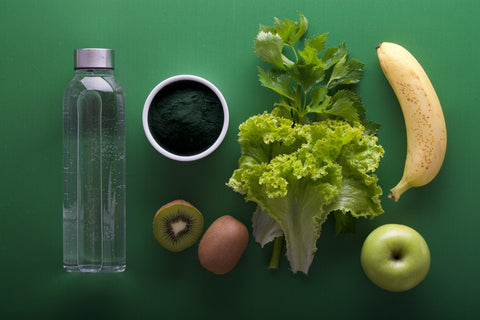When to Take CoQ10: Morning or Night

Key Takeaways
-
Timing Matters for CoQ10 Effectiveness: Taking CoQ10 in the morning boosts daytime energy and focus, during nighttime dosing aids recovery and repair during sleep.
-
Pair CoQ10 with Healthy Fats: For better absorption, take CoQ10 with meals rich in healthy fats like nuts, avocado, or olive oil.
-
Personalize Your Routine: Start with a low dose, adjust timing based on your lifestyle, and monitor results to optimize CoQ10 benefits for energy and health.
What is CoQ10?
CoQ10 is a natural compound your body makes. It plays a key role in providing energy to cells and supporting overall health. Let’s look at how it works and where you can find it in food.
The Role of CoQ10 in Energy Production
This compound is a naturally occurring antioxidant found in every cell of the body. It helps produce adenosine triphosphate (ATP), the energy currency of cells, making it essential for cellular function and energy levels.
Natural Sources of CoQ10
While your body produces CoQ10, it can also be found in foods like fatty fish, organ meats, and nuts. Taking supplements is often needed to reach the right levels of health benefits.
Benefits of Taking CoQ10 at Different Times
When you take this supplement, it can influence its effectiveness. Morning and evening doses each offer unique advantages based on your health goals.
Morning Benefits
Taking this supplement in the morning aligns with the body’s natural energy cycle. It can help:
-
Boost energy levels throughout the day.
-
Enhance focus and productivity.
-
Minimize potential sleep disturbances for sensitive individuals.
Nighttime Considerations
This antioxidant works well at night for recovery and overnight cellular repair. It might:
-
Support muscle recovery after evening workouts.
-
Provide antioxidant protection during sleep.
How to Incorporate CoQ10 into Your Routine
Creating a daily routine for taking CoQ10 helps you get the most out of it. Here's how to make it a regular habit.
Making CoQ10 a Daily Habit
Consistency is important when taking CoQ10. Pick a set time every day, like morning or night, to help you remember your dose.
Adapting CoQ10 to Your Lifestyle
If you take multiple supplements, consider pairing CoQ10 with meals rich in healthy fats for improved absorption and convenience.
Recommended Dosages of CoQ10
The right dosage of CoQ10 depends on individual health needs. Here’s an overview of typical recommendations and ways to adjust based on personal requirements.
General Dosage Guidelines
The typical dosage ranges from 100 mg to 300 mg per day, depending on your health goals and individual needs.
Adjusting Dosage Based on Individual Needs
-
Higher doses (up to 600 mg) may be recommended for individuals with specific conditions like heart disease or migraines.
-
Begin with a small dose and slowly increase it as your body adjusts.
How Long Does CoQ10 Take to Work?
The time it takes for CoQ10 to show results can change. Understanding factors like absorption and consistency helps set realistic expectations.
Factors Affecting Absorption
-
Age: Older individuals may have reduced CoQ10 absorption.
-
Dietary Fat Intake: Consuming CoQ10 with meals containing healthy fats improves bioavailability.
-
Formulation: Ubiquinol offers better absorption compared to ubiquinone.
When to Expect Results
Many people notice improved energy levels within a few weeks, while others may take 4-8 weeks to experience significant benefits.
Factors to Consider Before Taking CoQ10
Before starting CoQ10 supplementation, it’s important to understand potential interactions and whether it’s suitable for your individual health needs.
Interaction with Other Medications
-
Blood Thinners: CoQ10 can reduce the efficacy of anticoagulants like warfarin.
-
Statins: Some medications can reduce natural CoQ10 levels, so taking a supplement might be necessary.
-
Chemotherapy Drugs: CoQ10 can interact with some cancer treatments, so it's important to get advice from a healthcare professional.
Suitability for Various Individuals
CoQ10 is usually safe, but pregnant or nursing individuals and those with chronic health issues should carefully consider if they need it.
How to Maximize the Benefits of CoQ10
To get the best results from CoQ10 supplements, focus on the right timing, take it with healthy fats, and pay attention to how your body reacts.
Pairing CoQ10 with Fat for Better Absorption
-
Healthy Fats: Pair with avocado, olive oil, or nuts to enhance absorption.
-
Meal Timing: Take CoQ10 with your largest meal of the day for optimal benefits.
Timing Based on Activity Levels
Athletes or those with active lifestyles may benefit from taking CoQ10 before physical activity to support energy and recovery.
Monitoring Your Response to CoQ10
Notice how your body responds to this supplement and adjust the timing or dosage to o match your energy needs and health goals.
FAQs
What do cardiologists say about CoQ10?
Cardiologists often recommend CoQ10 for better heart health. It helps people with heart failure, high blood pressure, or those taking statins. CoQ10 boosts energy in heart cells and reduces stress caused by free radicals, which may improve heart function.
Is there any downside to taking CoQ10?
CoQ10 is usually safe but might cause mild side effects like nausea, stomach upset, or headaches. It could also interact with some medicines, so it’s a good idea to check with your doctor.
Can CoQ10 reverse a fatty liver?
CoQ10 might help improve liver health by lowering stress on liver cells. It’s not a cure for fatty liver but can work well with a healthy diet and lifestyle changes.
Does CoQ10 affect bowel movements?
Yes, CoQ10 might cause softer stools or mild diarrhea in some people. These effects usually depend on the dose and go away over time.
Can CoQ10 lower A1c?
CoQ10 may help lower A1c by improving how the body handles insulin. It’s not the main treatment for diabetes but can support better blood sugar control when used with other methods.
Conclusion
Finding the right time to take this supplement—morning or night—depends on what works best for you. Taking it in the morning can help boost energy while taking it at night supports recovery. Either way, CoQ10 is a great way to improve your overall health. At Just Glow, we’re here to support your wellness with high-quality supplements. Check out our products today and see how they can fit into your routine.
Summary
Timing is important when taking CoQ10. This powerful antioxidant helps with energy and overall health, but should you take it in the morning or at night? The best time depends on your needs and how your body reacts. Learn how to get the most from CoQ10 by choosing the right time for you.






